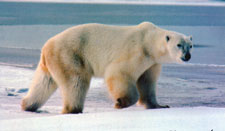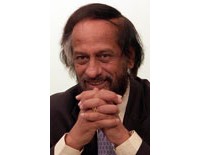Advertisement
Grab your lab coat. Let's get started
Welcome!
Welcome!
Create an account below to get 6 C&EN articles per month, receive newsletters and more - all free.
It seems this is your first time logging in online. Please enter the following information to continue.
As an ACS member you automatically get access to this site. All we need is few more details to create your reading experience.
Not you? Sign in with a different account.
Not you? Sign in with a different account.
ERROR 1
ERROR 1
ERROR 2
ERROR 2
ERROR 2
ERROR 2
ERROR 2
Password and Confirm password must match.
If you have an ACS member number, please enter it here so we can link this account to your membership. (optional)
ERROR 2
ACS values your privacy. By submitting your information, you are gaining access to C&EN and subscribing to our weekly newsletter. We use the information you provide to make your reading experience better, and we will never sell your data to third party members.
Environment
Muzzling Discussion
Interior bars Fish & Wildlife Service scientists from noting polar bear—climate-change nexus
by Bette Hileman
March 14, 2007

Two congressmen have sent a letter to the Department of the Interior, asking why it has barred its scientists from discussing how climate change and melting ice are affecting polar bear populations.
Rep. Bart Gordon (D-Tenn.), chairman of the House Committee on Science & Technology, and Rep. Brad Miller (D-N.C.), chairman of the House Oversight & Investigations Subcommittee, asked DOI for a variety of department records relating to foreign travel, climate change, and polar bears.
This "appears to be the latest effort by the Bush Administration to block a full and free discussion of issues relating to climate change by the scientific community, despite the President's recent acknowledgment that global warming was an issue that needed to be addressed," wrote the chairmen in their letter.
Internal memoranda issued by the Alaska region of the U.S. Fish & Wildlife Service (FWS), which is part of DOI, say that biologists and other scientists traveling to meetings in Norway and Russia are not permitted to talk about the relationship between changing bear behaviors and retreating sea ice, unless they are specifically designated to do so.
One memo told FWS biologist Janet E. Hohn that, on her trip to Norway, she should not speak on or respond to questions about the effect of climate change on polar bear populations. Only one official, Julia Gourley, will be allowed to discuss this topic, the memo said. A second memo ordered FWS biologist Craig Perham, who is traveling to Siberia to advise villagers about how to prevent dangerous encounters with polar bears, to discuss only public safety issues. Recently, interactions between people and bears have become much more frequent, presumably because rising temperatures are shrinking the sea ice that bears need for hunting seals.
FWS spokesman Chris Tollefson claims the intent of the memos is not to keep scientists from speaking out. Their purpose is "to make sure we are all on the same page in understanding who is going to be speaking officially for the U.S. government," he says.
On Jan. 9, FWS proposed listing the polar bear as a threatened species under the Endangered Species Act. Strong evidence suggests that populations are declining owing to shrinking sea ice, the Federal Register notice says.





Join the conversation
Contact the reporter
Submit a Letter to the Editor for publication
Engage with us on Twitter